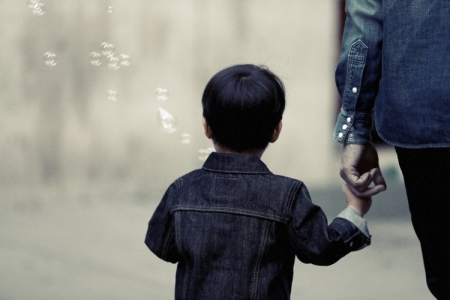Half of American women in childbearing years unaware of adoption process, benefits: study

Millions of American women of childbearing age have significant gaps in their understanding of the process and benefits of adoption, according to new research.
The findings from Dr. George Barna and the Cultural Research Center at Arizona Christian University suggest about half of all women of childbearing age (15 to 44) are unaware of how it works and its benefits.
Teenage girls registered the lowest level of basic knowledge about adoption, with less than a quarter (23%) having such knowledge, compared to 53% of women nationwide.
More than a quarter of women (27%) were unaware that a birth mother can continue her education or job throughout the pregnancy and adoption proceedings, without losing any income or benefits, researchers found.
Another 21% did not realize that birth parents can choose which family will adopt their child. That number more than doubled (47%) among younger respondents, the study found.
Commissioned in January by national adoption research center The Opt Institute, the study, titled “Adoption & Its Competitors: Results of a National Survey Regarding Adoption in the United States in 2022,” asked a national random sample of 1,091 women between the ages of 15 to 44 to identify whether five basic statements describing adoption were true or false:
Being able to participate in an “open” adoption allows the birth parents to remain part of the child’s life in a specified capacity;
Birth parents can receive private counseling and other emotional support before, during and after the adoption;
The birth mother’s pregnancy is completely paid for by the adopting parents;
The birth parents may choose the family that adopts the child;
The birth mother may continue her education or job throughout the pregnancy and adoption proceedings, without losing any income or benefits.
While all five statements are factually accurate, just over half of all women of childbearing age (53%) were aware that at least four of the statements are true, compared to just 15% who believe that none or just one of the statements is true, according to the study.
The women who tended to be most informed regarding adoption are those in their 40s (70%) and married women (63%). The segments of women who are least well-informed about adoption are those who had been adopted as an infant (29%), Asians (28%) and teen girls (23%), the study found.
Researchers identified four common motivations behind the willingness to place a child for adoption: the mother’s financial situation (33%); her desire to do what is in the best interests of the child (32%); a desire to help a family seeking to adopt a child (29%); and the mother recognizing her personal lack of preparation or maturity to raise a child (23%).
While there are an estimated 65 million women in the U.S. considered to be of childbearing age (15 to 44 years of age), research indicates that growing numbers of young women have little interest in having children, according to the study.
But with a staggering 45% of women currently of childbearing age saying they experienced physical, sexual or emotional abuse while growing up, researchers say that background undoubtedly has influenced the interest of young women in having children.
That leaves three choices these women can make: give birth and raise the child; give birth and place the child for adoption; or abort the child.
John Knox, founder of The Opt Institute, said he hopes the research sparks a discussion of adoption as an option for American women.
“For women who, for whatever reason, will not be able to raise a child, adoption is a wonderful alternative, as attested by millions of adults who were placed by mothers for adoption as children,” he said. “The positive experiences of those adopted children and the incredible gifts they are to society are a testimony as to why adoption should be a respected and meaningful option for women to consider.
“We can do better to provide women with accurate, complete and non-coercive information about the loving choice of adoption, and this study is significant in showing why this is critical.”
A decision by the U.S. Supreme Court in the Dobbs v. Jackson Women’s Health Organization case expected as early as this week has renewed attention nationwide on the topic of abortion, but legal experts say it’s unclear how that ruling might affect the rate of adoption in the United States.





















